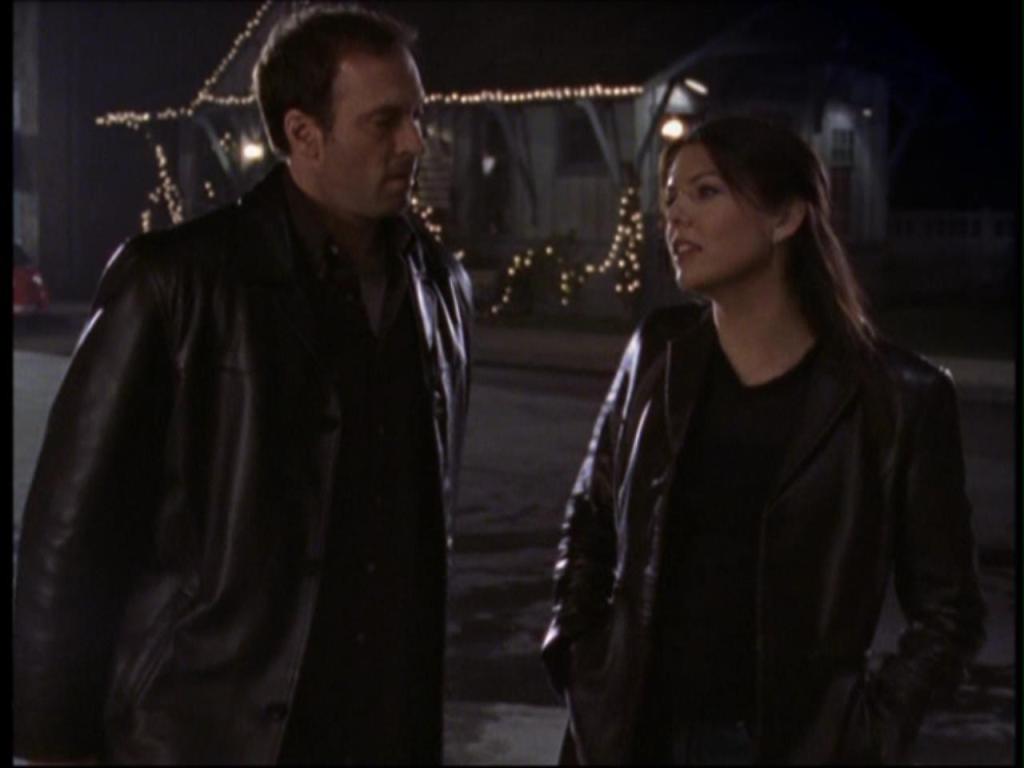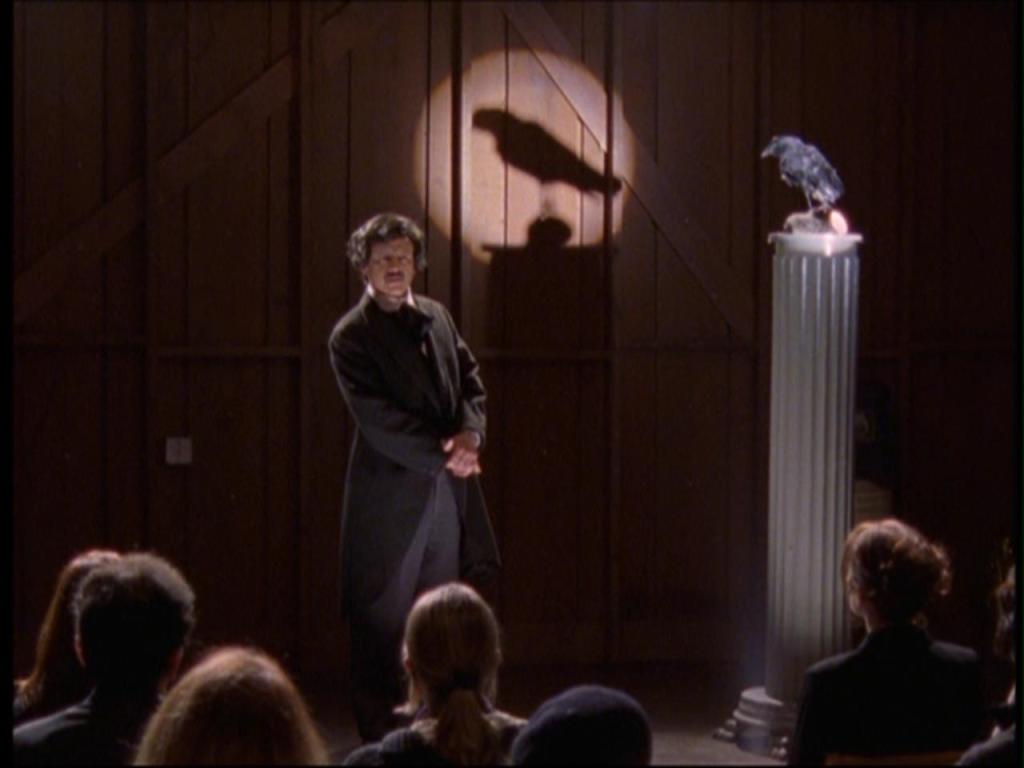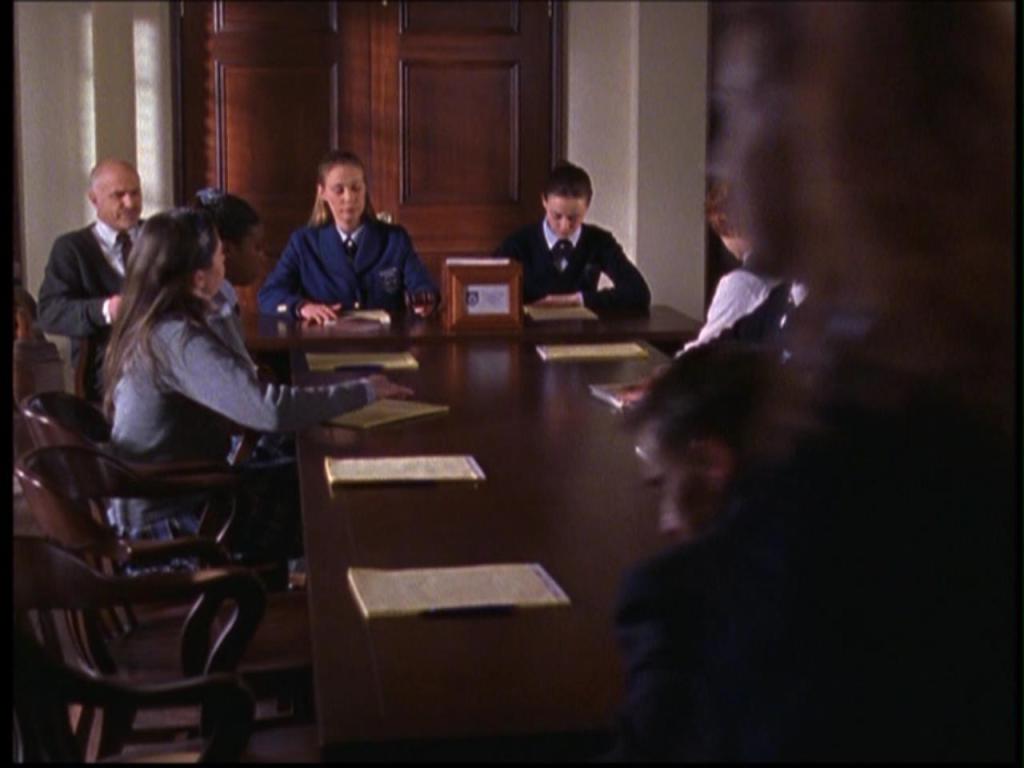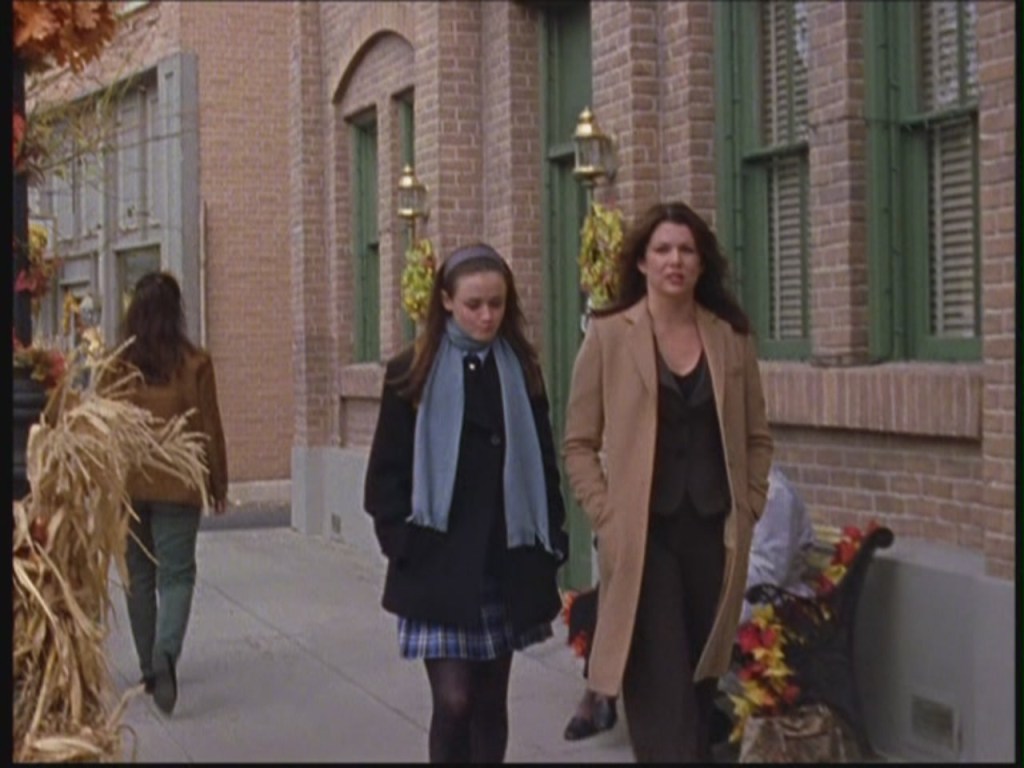
JESS: Bizarro day, huh?
Bizarro, previously discussed.
Footnotes to the TV series

LUKE: He [Jess] must be pulling double shifts on the weekends. It’s all I can think of.
LORELAI: No, he’s pretty much duding it with Rory on the weekends.
Duding it, or duding it up, American slang with the vague meaning of doing something in a very cool young male way.

LORELAI: [quietly to Rory] That Poe was downright funalicious.
Funalicious, American slang, meaning “excitingly fun”. A portmanteau word combining “fun” with “delicious”.

MAX: I’ve been in California.
LORELAI: Well, cowabunga dude.
Cowabunga, a phrase of unknown origin which was popularised (as Kowa-Bunga) on the children’s TV show Howdy Doody in the late 1940s and early 1950s, where it was used by a character named Chief Thunderthud as a fake Native American greeting [picture shows it as Cowabonga, just to confuse things]. It became associated with the surfing subculture, who spelt it cowabunga, and used it to express delight or satisfaction.
By the early 1980s it was used as a catchphrase by Cookie Monster on Sesame Street, and became more widely known in the late 1980s and early 1990s due to its use by the cartoon Teenage Mutant Ninja Turtles. Bart Simpson from animated series The Simpson gave it even broader recognition in the 1990s.
Lorelai presumably thinks of it as a particularly Californian phrase because of its use by surfers. It seems as if almost everyone who leaves Connecticut goes to California! Max is Lorelai’s second ex to move to San Francisco.

EMILY: There was something with a big rig. Oh, those things, they scare the life out of me. And apparently, all the men who drive them are hopped up on bennies and goofballs.
Big rig, informal English for a large truck, an 18-wheeler – otherwise known as a semi-trailer truck, a semi-trailer, a semi-truck, or just a semi.
Bennies, slang for the drug Benzedrine, an amphetamine used recreationally since the 1920s.
Goofballs, slang for tranquilisers or sleeping pills, used as a recreational drug. Note that you can’t really get “hopped up” on sleeping pills, and taking them alongside amphetamines seems counterproductive, suggesting that Emily’s knowledge of the drug scene is limited. I think this is her attempt to seem cool and hip in front of Jess.

In slang, the term salt mines, and especially the phrase back to the salt mines, refers ironically to one’s workplace, or a dull, tedious task. This phrase originates from the early 19th century in reference to the Russian practice of sending prisoners to forced labour in Siberian salt mines.

LUKE: Even if there was something, which I’m not saying there was, she’s a suit. Not my type.
Suit, American slang for people working in management roles or corporate life.

FRANCIE: Rory came to me and said she wanted to talk about some things . . . you know, policy, the prom, the senior gift, et cetera. So of course I said, “why don’t we talk about them at the student council meeting with Paris?” And she said she wanted to do this without Paris. She said Paris is just too wrapped up in that boyfriend of hers to care about any of this. I didn’t know what to do, so I went, and then I found these, and I’m just so upset. I mean, I would never intentionally do anything behind your back, Paris. And I promise, the next time Rory tries to get me to, I’m just gonna say, ‘Talk to the hand’, you know what I mean?
Talk to the hand, slang from the 1990s, a sarcastic way of saying the person doesn’t want to listen. More or less telling them to shut up. Often accompanied by holding the hand out with the palm towards the speaker, as if physically stopping the person from continuing.
Francie’s story about Rory is fanciful and accompanied by the most flimsy of evidence. Even if it were true, all she is claiming is that Rory spoke about the prom without involving Paris, which already happened at the supplementary meeting, and Paris wasn’t that bothered.
The fact that Paris falls for this farrago of lies tells us that Rory is more important to her than she has let on, and that she is far more insecure than she likes people to know. Also, plot drama!

PARIS: Paris, Rory. Bedwetter.
Bedwetter, derogatory slang for a cowardly person. Paris is (very rudely) speaking to Mr Hunter this way, because she sees him as a coward for giving in so easily to Francine at the surprise meeting.

[Lorelai and Rory are walking down the sidewalk]
RORY: So she coldcocked you, huh?
To be coldcocked is American slang meaning to be struck so forcefully that you are knocked unconscious. It appears to date to the early 20th century, but the origin is not known. The “cold” part is obviously from being knocked out cold, but no one can agree on the “cock” part.
The sign says it is the Autumn Festival again, which is supposedly the first weekend in November, but possibly continues right through until Thanksgiving.